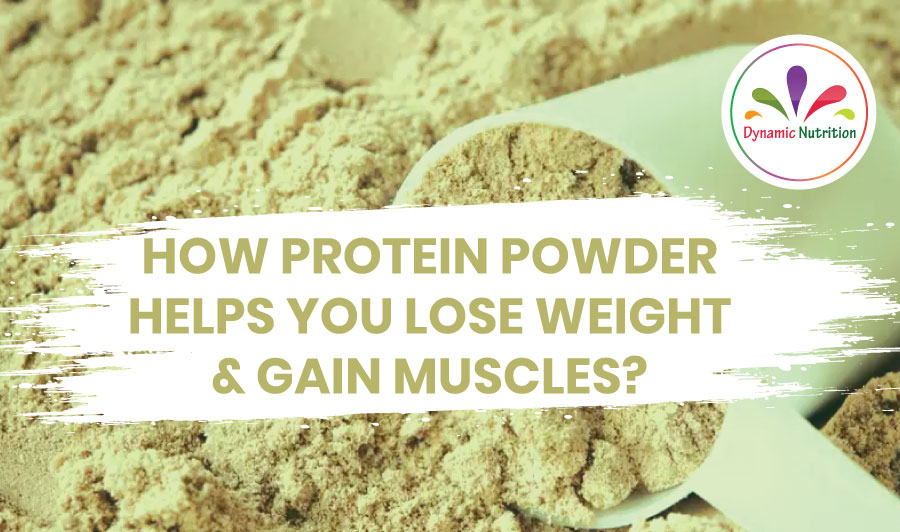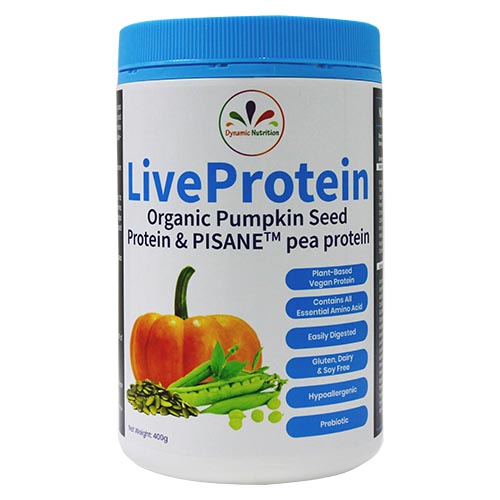Protein is an important nutrient for weight loss. Getting enough can boost your metabolism, reduce your appetite and help you lose body fat without losing muscle. Protein powders are an easy way to add more protein to your diet, and have been shown to help with weight loss. Let’s take a look at how protein powders can affect your weight.

Protein Shakes Decrease Hunger and Appetite
Protein can decrease hunger and appetite in two main ways. First, it increases levels of appetite-reducing hormones like GLP-1, PYY and CCK, while reducing levels of the hunger hormone ghrelin. Second, protein helps you feel full for longer.
In one study, a high-protein breakfast helped participants consume up to 135 fewer calories later in the day.
In another study, overweight men who had been on a weight loss diet increased their protein intake to 25% of total calories. This increase cut cravings by 60% and late-night snacking by half.
Increasing protein intake from 15% to 30% of total calories helped consume 441 fewer calories per day without actively trying to limit their portions. So if you’re trying to lose weight, 20 grams per shake seems sufficient to reduce hunger.
Protein Shakes May Increase Metabolism
High protein intake can boost your metabolism, helping you burn slightly more calories each day. That’s in part because a high-protein diet — especially when combined with strength training — may help you build muscle. This can speed up your metabolism because muscle burns more calories than fat.
One study gave obese participants shakes with either 200 or 0 grams of extra protein per week. Those given the protein gained 2.8 lbs (1.3 kg) more mass following a 13-week training program.
In another study, researchers gave participants a combination of foods and shakes providing either 0.5 g/lbs or 1.1 g/lbs (1.2 g/kg or 2.4 g/kg) of protein per day. After 6 weeks, those on the higher-protein diet gained 2.4 lbs (1.1 kg) more muscle and lost 2.9 lbs (1.3 kg) more fat.
It should be noted, however, that your ability to gain muscle during a weight loss diet may depend on the amount of muscle you already have. Protein can also increase metabolism because of the amount of calories needed to digest and metabolize it. This is known as the thermic effect of food (TEF). For instance, 15-30% of protein calories are burned during digestion, while only 5-10% of carb calories and 0-3% of fat calories are burned during digestion.
Protein Shakes May Help You Lose Weight and Belly Fat
Researchers generally agree that high-protein diets can help you lose more fat, especially fat from the belly area.
In one study, participants on a diet providing 25% of calories as protein lost 10% more belly fat after 12 months than those eating half that amount.
In another, participants given an extra 56 grams of whey protein per day had lost 5 lbs (2.3 kg) more at the end of a 23-week study period, despite not consciously changing anything else in their diet.
In addition, protein has another benefit on weight loss: it helps preserve lean body mass during periods of caloric restriction. One study compared the effect of low protein intake (1.0 grams per kilogram per day) to high protein intake (2.3 g/kg per day) on lean body mass over a short term caloric deficit. On average, the low protein group lost about 1.6 kilograms (3.5 pounds) of muscle mass while the high protein group only lost 0.3 kg (0.66 pounds) of muscle mass.
Another similar study compared 0.8 g/kg per day against 1.6 g/kg per day and 2.4 g/kg per day and found that the two higher intakes (1.6 and 2.4 g/kg per day) spared more lean body mass than the 0.8 g/kg per day diet. They also found that there was no real benefit to 2.4 g/kg per day over 1.6 g/kg per day.
Currently, most evidence suggests that ~1.6 grams of protein per kilogram, or .73 grams of protein per pound is a recommended daily target for protein intake to spare lean body mass loss during periods of weight loss.
Protein Is Hard To Store As Body Fat
During periods of weight loss, there are often times where more energy is consumed than expended. As such, minimizing how much of that excess energy (i.e. calories) is stored as fat is important. The body processes the three different macronutrients (i.e. proteins, carbohydrates, and fats) in very different ways.
Leaving out a lot of jargon and mumbo jumbo, in order for protein to be stored as fat, it goes through a much different biochemical process than either carbohydrates or protein. This process makes it much harder for protein to store as body fat.
One study found that protein is stored as body fat with roughly 66% efficiency, while carbohydrates store with 80% efficiency and fats store at 96% efficiency.
During weight loss, overeating protein results in much less stored body fat than overeating on carbohydrates or fat.










Facebook Comments